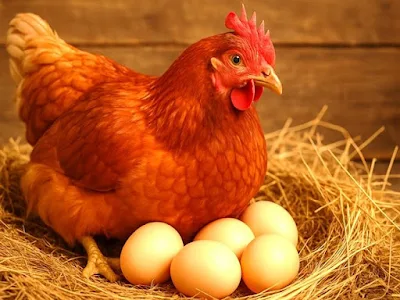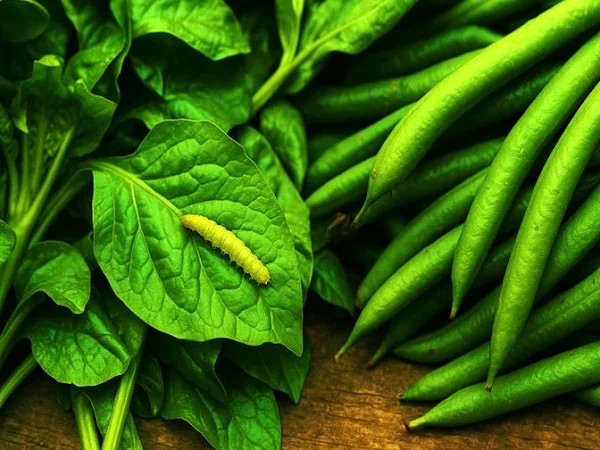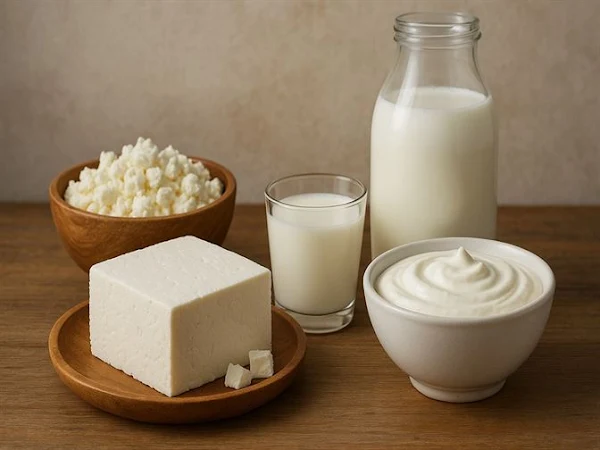- Get link
- X
- Other Apps
- Get link
- X
- Other Apps
🌧️ Why Avoid Certain Foods During Saavan | Monsoon Diet Guide
The monsoon season, or Saavan as it's called in Hindi, not only brings relief from the summer heat and lush greenery, but also creates perfect conditions for germs and bacteria. This isn't just folklore—scientific evidence supports what many traditions recommend. In Hindu households, certain foods are often avoided during this period to help prevent upset stomachs, infections, or allergic reactions.
Let’s dive into which foods people traditionally skip, why they do so, and smart ways to stay grounded and well during Saavan.
❓ Why Do Some Families Avoid Eating These Foods During Saavan?
•These foods are commonly avoided during the rainy months:
- Non‑veg (mutton, chicken, eggs, fish)
- Green leafy vegetables
- Mushroom
- Certain dairy products
All of these thrive in damp, humid environments, which increase the risk of contamination or spoilage—turning even simple meals into potential risks.
🙏 Fasting Traditions During Saavan – The Spiritual Side of Avoiding Non Veg
During the holy month of Saavan, many Indian families practice discipline and focus on both mental and physical well-being.
As a part of this tradition, many people avoid non-vegetarian foods like:
- Mutton
- Chicken
- Eggs
- Fish
These foods are believed to be heavy, so our stomach has to work harder to digest them. Even those who don’t fast often avoid non-veg for the entire month of Saavan. It’s seen as a time for cleansing the body, eating light meals, and keeping the mind calm.
✅ Scientific Reason to Avoid Non Veg:
- During the rainy season, it’s easier for bacteria and germs to grow in meat, eggs, and fish.
- Animals like goats, cows, and buffaloes eat wet grass, which may contain harmful germs.
- Chickens and birds often feed on worms or insects, increasing the risk of infections.
- Meat and fish spoil faster in humid weather, which can lead to food poisoning if not handled carefully.
So even today, many health experts suggest not eating meat, fish, or eggs during monsoon unless they are fresh, clean, and cooked properly.
❓ Which Vegetables Are Traditionally Avoided During Saavan?
Here’s a list of veggies people usually skip during the rainy season!
- Brinjal (eggplant)
- Spinach and other leafy greens
- Beans and legumes (cluster beans, French beans, broad beans)
- Mushrooms
✅ Why These Are Avoided
1. Brinjal (Eggplant)
During the monsoon season, it is recommended to avoid consuming brinjal, as it is more susceptible to infestations by worms and insects. Their moisture content drives spoilage fast and can lead to discomfort like heaviness or mild digestion issues.
2. Leafy Greens (Spinach, etc.)
Water and mud cling to dense leaves. Washing often won't remove hidden bacteria or tiny organisms that may cause gastric issues.
3. Pods (Beans, etc.)
These veggies absorb water and become prime breeding grounds for bacteria unless perfectly cleaned and cooked—something not always feasible at home.
4. Mushrooms
Due to their high moisture content, mushrooms are prone to mold and spoilage in humid weather. Untested wild mushrooms, in particular, are dangerous during this time.
❓ What’s the Risk With Dairy During Saavan?
During the monsoon, dairy products like milk, yogurt, paneer, and kadhi pakoras are more likely to spoil—especially in humid conditions.
- Animals often feed on wet, moldy grass—which can pass into milk.
- Milk and yogurt can spoil quickly, even if freshly purchased.
- Traditional dishes like raw yogurt or paneer can harbor hidden bacteria.
✅ Traditional Approach:
In Saavan, many curtail or avoid dairy, particularly:
- Raw yogurt or lassi
- Paneer, especially fried or in pakoras
- Milk-based sweets
Instead, they may boil milk and use it sparingly, until the season passes.
Q&A: Your Top Questions Answered
❓ What’s the main health risk during Saavan?
Answer:
When it’s super humid and rainy, germs, fungus, and even parasites can grow way faster than usual. These can contaminate food, water, and surfaces—causing infections, stomach issues, and allergies.
❓ Do scientific facts support these traditional beliefs?
Answer:
Yes. Our ancestors knew from experience what science later confirmed. The mix of high humidity and continuous rainfall makes it easy for bacteria, fungus, and parasites to multiply quickly—so hygiene becomes extra important during monsoon. Now we know why—and why monsoon-specific dietary habits developed.
❓ How can we still enjoy vegetables during Saavan?
Answer:
Focus on safer, well-washed options:
- Seasonal gourds (bottle, ridge, tinda, bitter gourd)
- Root vegetables thoroughly washed and cooked
- Cooked dishes over raw salads
- Thorough cleaning—wash, soak, and rinse vegetables
❓ Can we have milk or homemade yogurt?
Answer:
- Use pasteurized or well-boiled milk
- Prefer fresh homemade yogurt consumed within hours
- Avoid raw paneer; cook it well or skip it
- Avoid street-sourced dairy altogether
❓ How should we handle meat, eggs, and fish?
Answer:
- Use only from trustworthy, hygienic suppliers
- Cook meats thoroughly—no pink inside
- Avoid reheating multiple times
- Store leftovers properly in refrigerators—eat same-day
❓ How Can We Fulfil Our Daily Nutrient Needs, Especially Protein?
When people avoid meat, they often worry about missing out on protein. But even without non-veg, there are many rich vegetarian sources of protein that are filling and easy to cook at home.
Here are a few healthy options you can enjoy during Saavan:
- Dal (Lentils) – Masoor dal, moong dal, toor dal are great sources of protein and energy.
- Chana (Black Chickpeas) – You can soak and boil them for salads or make curry.
- Rajma (Kidney Beans) – Delicious and rich in nutrients. Perfect with rice.
- Chhole (White Chickpeas) – Tasty, filling, and packed with protein. Great with chapati or rice.
- Soyabean – One of the best vegetarian protein sources. You can soak and cook them just like chana or make soyabean curry, which is both healthy and satisfying.
These foods are light, easy to digest, and full of protein, helping you stay strong and nourished even while following a vegetarian diet during Saavan.
🧾 Traditional and Safe Table During Saavan
| Time of Day | Allowed Foods | Avoid or Use With Caution |
|---|---|---|
| Morning | Herbal teas, light porridge | Spicy snacks |
| Lunch | Cooked gourds, roots, dal, rice | Leafy greens, beans, raw salads |
| Dairy | Boiled milk, fresh homemade yogurt | Raw yogurt, paneer, kadhi pakoras |
| Snack | Seasonal fruit (except mushrooms) | Mushrooms, egg-based snacks, unclean non-veg food |
| Dinner | Light-cooked vegetable meals | Non-veg unless clean & properly cooked |
🍽️ Tips to Stay Healthy During Saavan
- Wash veggies thoroughly—soak and rinse (2–3 times).
- Cook everything well—especially dairy, meat, eggs.
- Avoid street food or unpasteurized dairy.
- Store food properly—cool storage, airtight containers.
- Stay hydrated—even during rains, you need enough water and electrolytes.
⚖️ Final Thought from DAILY FOOD KITCHEN
Saavan is a nurturing season—not one for deprivation. Avoid foods prone to spoilage or contamination, and instead opt for clean, cooked, seasonal meals, warm drinks, and careful storage.
By following the blend of tradition and modern understanding, you can support your health while still savoring the joys of the monsoon.
🧾 Useful Monsoon Diet Table
| Time | Recommendation |
|---|---|
| Morning | Herbal tea or warm water with lemon |
| Mid-Morning | Seasonal fruits like guava or papaya |
| Lunch | Rice with cooked dal and bottle/ridge gourd |
| Afternoon | Light snack: fruit or soaked nuts |
| Dinner | Simple vegetable khichdi or mixed vegetable curry |
⚠️ Disclaimer
This article is rooted in traditional Indian home practices and publicly available information, not medical advice. We are not healthcare providers, nutritionists, or dietitians, and we do not accept responsibility for any outcomes. So, please consult your doctor before making significant changes to your diet—especially if you have existing health conditions.
👉 For more information, see our privacy policy and disclaimer.
daily food kitchen
dairy and non veg in monsoon
fasting during saavan
foods to avoid in rainy season
mansoon kitchen food
monsoon food tips
monsoon health
saavan diet
seasonal eating
- Get link
- X
- Other Apps








Comments
Post a Comment
Thank you, for giving us feedback.